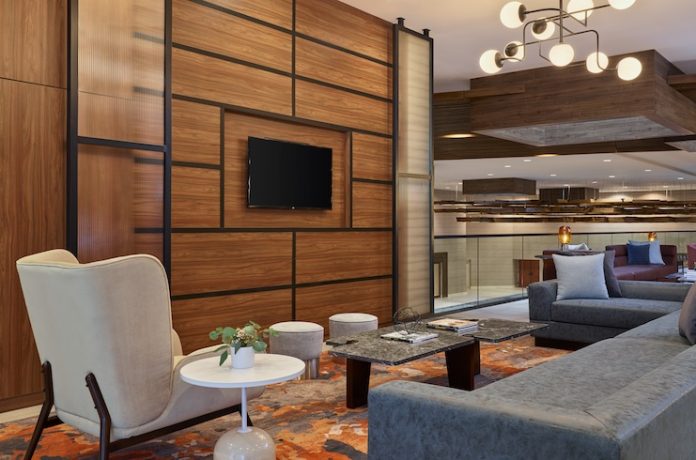Chatting with LODGING at the 2022 AAHOA Convention and Trade Show (AAHOACON) in Baltimore, Anthony (Tony) Nacci, senior director, global brand management, Marriott International, says it was mainly his success with the Autograph Collection and Tribute Portfolio that prepared him to pivot when Marriott decided to switch the course of the Delta Hotel brand it purchased in 2015 to encompass more conversions. Among the points he made during the convention, where large numbers of attendees were second- or even third-generation hoteliers, was that the Delta Hotel brand can offer these legacy hoteliers the opportunity to “raise their game,” saying, “Many of them are visionaries who want to elevate the businesses their parents built. Delta Hotel is a great gateway for them to make the move from the select-service to full-service segment.”
What drove the move towards conversions for Delta?
The decision was based largely on economic realities prior to and since the pandemic. My success with upscale independent hotels in the Tribute Portfolio and Autograph Collection was a key factor in my selection for the tasks of converting the properties from their previous brands to ours by collaborating with ownership groups to begin implementing the transformation—sometimes beginning with small tweaks due to the current economic environment—although the long-term goal is to make more extensive changes that conform to our vision.
What does the brand’s pipeline look like and what portion of that is conversions?
When we acquired the brand in 2015, there were 36 hotels under various flags or that were independent. That number is up to 93 now and we expect to hit 100 sometime this year. Of the signed deals that have been approved or are under construction now, 65-70 hotels—80 percent—are conversions. Our process is to have our development team visit the new franchisee, then develop a property improvement plan (PIP). When we know how much capital they plan to invest, we prioritize what we need to do make the building safe. Only after that do we consider where we can infuse aspects of the brand within the budgetary guidelines.
What are some of the key features that are essential for distinguishing the brand?
We’re trying to take care of the needs of our guests, who are typically traveling for business, so they can maintain their normal routines while on the road. For this reason, our first priority is to improve their fitness and F&B experiences. Delta Pantry is our answer to the concierge lounges that some of our other brands offer. It is focused on the Platinum, Titanium, and Ambassador Elite Members, who can have convenient 24-hour access to this grab-and-go for continental breakfast, premium snacks, and beverages. The fitness center offers not just the standard equipment—elliptical, bikes, and treadmills—but also the space to continue their normal fitness routines.
What challenges are you facing, and how are you navigating them?
The business climate is unlike any I’ve seen before. Money is harder to come by, and there are some different strategies used to obtain funding, such as mixed-use properties that have a residential as well as housing component.
We are extremely focused on the relationship-building aspect of bringing in new owners and franchisees. We don’t want to enter an agreement that isn’t mutually beneficial, so whenever we look at an opportunity, we examine the upside of that market, how the competition is doing, and how we can improve the guest experience with the funds that are available. We want to grow the brand as much as possible, but at the end of the day, we want happy owners, because if they’re not successful, we’re not successful.
How is Delta Hotel’s new-build prototype introduced in 2020 being implemented?
The prototype was created to be implemented in its entirety, with products and a design that fit the footprint of the economic model of the rates it can drive. It offers many advantages in terms of cost; because much of it is off the shelf, owners don’t need an architect, designer, or to have furniture custom made. There are design modules for the façade, the appearance, and placement of the fitness center and pantry, etc. However, some elements can be used for conversions for the sake of simplicity—especially when the case goods aren’t branded and are only a few years old; for example, changing out the material on the headboard to make sure it fits the overall color palette and narrative that the Delta Hotel brand stands for.










